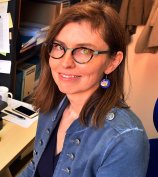Cette vidéo est proposée dans une version doublée en français. La version originale en anglais est également accessible ci-dessous.
Documents et médias
Session 2 : Saisir l'incorporation du social : socialisation (sociologie) et embodiment (social epidemiology)
Résumé
Understanding how structural, social and psychosocial factors come to affect our health resulting in health inequalities allows us to move beyond description towards policy interventions. Based on concepts developed by scholars from different disciplines, I will provide the backdrop to a conceptual framework for research on social-to-biological processes, which may be important contributors to health inequalities. I will explain the broad sets of mechanisms that may allow us to comprehend how socially structured exposures become embodied over the life course. I will describe an intersectional embodiment dynamic framework, its uses, and how it may serve to examine the manner through which intermeshed systems of oppression affect social exposures, which may be expressed biologically. Using empirical evidence over the last decade from the field of social epidemiology I will explain the usefulness of this framework as a tool for carrying-out and interpreting research through an equity lens, providing scientific evidence to challenge genetic and other forms of essentialism, often used to dismiss social inequalities in health.
Michelle Kelly-Irving

Michelle Kelly-Irving est directrice de recherche à l'Inserm. Elle travaille sur la production des inégalités sociales de santé au cours de la vie par le biais des processus d'incorporation. Elle est épidémiologiste sociale et travaille au centre d'épidémiologie et de recherche sur les populations de santé (CERPOP) de l'Inserm-université de Toulouse, en France, où elle dirige l'équipe de recherche EQUITY.
Intervenant(s)
